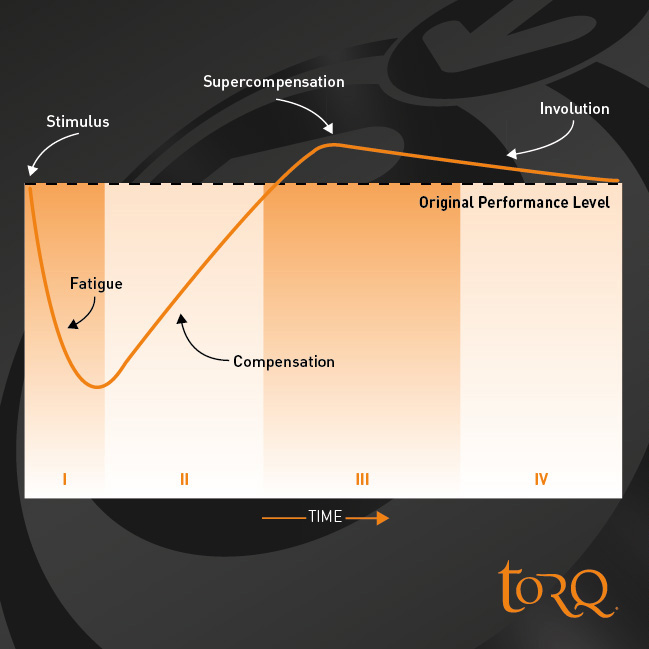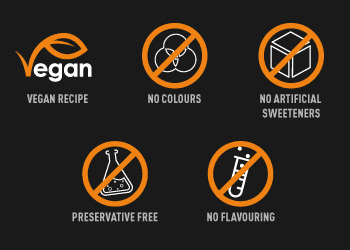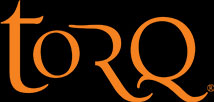Beta-Alanine Powder
£9.95 – £69.95
Product Highlights
- Pure Pharmaceutical Grade
- Enhances Short-Term High Intensity Exercise Performance
- Improves Recovery Between Anaerobic Intervals
- Stimulates Greater Training Adaptation
- Improves Sprint Performance when Fatigued
Product Summary
Supplementing with Beta-Alanine allows an individual to generate more stress through their anaerobic energy system. Through improved metabolic bi-product buffering capacity; sprint performance, recovery time and adaptation to training is improved. Daily supplementation of Beta-Alanine allows for a greater synthesis of muscle carnosine, the cellular regulator of muscle acidosis during periods of high intensity exercise.
Beta-Alanine is a key ingredient in our TORQ Recovery Plus+ product also and may better suit your specific needs as it contains both TORQ HMB and Sodium Phosphate. Once you have explored the tabs on this product, take a look and decide what will work best for you.
Product Usage
1 level scoop delivers 5-6 grams of TORQ Beta-Alanine.
During periods of high training load such as a racing season, training camps and phases of interval training you should consume between 5-6g of Beta-Alanine per day, divided into 2 doses. For optimal results, divide into 5-6 X 1g doses and consume throughout the day. Furthermore, you should aim to load on Beta-Alanine 6 weeks prior to the suggested usage periods. You may wish to dilute with water or fruit juice for easier consumption. It may be easier to mix the full 5-6 grams (1 scoop) into a beverage in the morning and graze on it throughout the day.
Please Note: that Beta-Alanine can cause ‘flushing’ and make the skin tingle, so please don’t be alarmed – this is totally normal.
Technical Information
High intensity exercise such as interval sessions, cause an accumulation of metabolic bi-products in skeletal muscle cells and blood. Increased concentrations of metabolic bi-products such as lactic acid have been shown to significantly reduce exercise performance via a decrease in cellular pH (acidosis), promoting the onset of fatigue. The body has the ability to buffer metabolic bi-products from the muscle cells during exercise, with the use of muscle carnosine. Endogenous (stored) carnosine is located within the cytoplasm of muscle cells, the same location where lactic acid accumulates during periods of high energy demand.
Carnosine is a dipeptide, derived from two amino acids, Beta-Alanine and L-histidine, and found within foods such as white and red meats. However, carnosine is unable to be transported into muscle cells from the blood and therefore must be broken down into two backbone amino acids, Beta-Alanine and L-histidine before the production of carnosine can occur within the muscle cell. Interestingly, L-histidine concentration is greater than Beta-Alanine and therefore, the production of carnosine to buffer lactic acid is limited by Beta-Alanine availability. The accumulation of lactic acid often leads to a burning sensation felt deep within the muscle tissue and coupled with this sensation, is a reduction in power output.
Research suggests that supplementing with Beta-Alanine significantly improved 30-second sprint performance, especially during the final few seconds when muscle lactate accumulation is more evident. By understanding this, we can conclude that increased cellular concentrations of muscle carnosine allows an individual to generate greater levels of power before significant accumulation of lactic acid has a negative impact on performance.
Additionally, further research has also demonstrated, that average and peak power performance over a 30-second sprint was improved following 110 minutes of simulated racing (Average +5% – Peak +11.5%), suggesting that athletes supplementing with Beta-Alanine will have the physiological edge over their competitors when a race position is decided by a final sprint interval.
Not only has Beta-Alanine supplementation been shown to have positive implications to sprint performance, but also research has demonstrated that more prolonged periods of high intensity exercise can be enhanced. When researchers examined the effects of 10 weeks of Beta-Alanine supplementation, muscle carnosine content increased by 80%, allowing athletes to cycle at a greater exercise intensity for a longer period of time. The ability to improve anaerobic power production will ultimately improve functional threshold power (FTP) by shifting the power curve further to the right as the lactic acid buffering capacity is improved, thus not limiting performance so soon.
Training & Adaptation
The ability to buffer metabolic bi-products effectively during high intensity interval sessions will allow an individual to stress the anaerobic energy systems greater than non-supplemented sessions. As muscle acidosis has been shown to be the limiting factor of exercise intensity, supplementation with Beta-Alanine will create a less acidic muscular environment, allowing a person to train at a greater intensity, attaining higher power outputs for longer periods of time, leading to positive performance adaptations. The graph below illustrates fundamental training theory. Quite simply, the greater the fatigue stimulus (the more work done), the greater the super-compensation (training gain). Beta-Alanine sets the scene for a greater training/fatigue stimulus.

Please note that Beta-Alanine is a key ingredient in our TORQ Recovery Plus+ product, which also contains TORQ HMB and Sodium Phosphate. HMB in particular works synergistically with Beta-Alanine, assisting in the adaptation process illustrated above. Beta-Alanine helps to generate a greater fatigue stimulus and HMB assists with the compensation phase, resulting in a greater and quicker supercompensation (the training effect). If you think that you might benefit from both Beta-Alanine and HMB supplementation, you may be interested in purchasing TORQ Recovery Plus+ or you could purchase TORQ HMB separately as a BULQ product.
Nutritional Information
Ingredients: 100% Pure Pharmaceutical Grade Beta-Alanine.
No Colours // No Flavours // No Artificial Sweeteners // No Preservatives // Suitable for Vegans
Allergy Information: No Allergens
If you have any questions about this product or any other on this website, please don’t hesitate in contacting us at enquiries@torqfitness.co.uk or on 0344 332 0852.
References
- 1. Artioli, G.G., Gualano, B., Smith, A., Stout, J. and Lancha Jr, A.H., 2010.
Role of beta-alanine supplementation on muscle carnosine and exercise performance. Med Sci Sports Exerc, 42(6), pp.1162-1173. - BAUER, K. and SCHULZ, M., 1994.
Biosynthesis of carnosine and related peptides by skeletal muscle cells in primary culture. The FEBS Journal, 219(1‐2), pp.43-47 - Derave, W., Özdemir, M.S., Harris, R.C., Pottier, A., Reyngoudt, H., Koppo, K., Wise, J.A. and Achten, E., 2007
β-Alanine supplementation augments muscle carnosine content and attenuates fatigue during repeated isokinetic contraction bouts in trained sprinters. Journal of applied physiology, 103(5), pp.1736-1743 - Dunnett, M. and Harris, R.C., 1999
Influence of oral ß‐alanine and L‐histidine supplementation on the carnosine content of the gluteus medius. Equine veterinary journal, 31(S30), pp.499-504.










